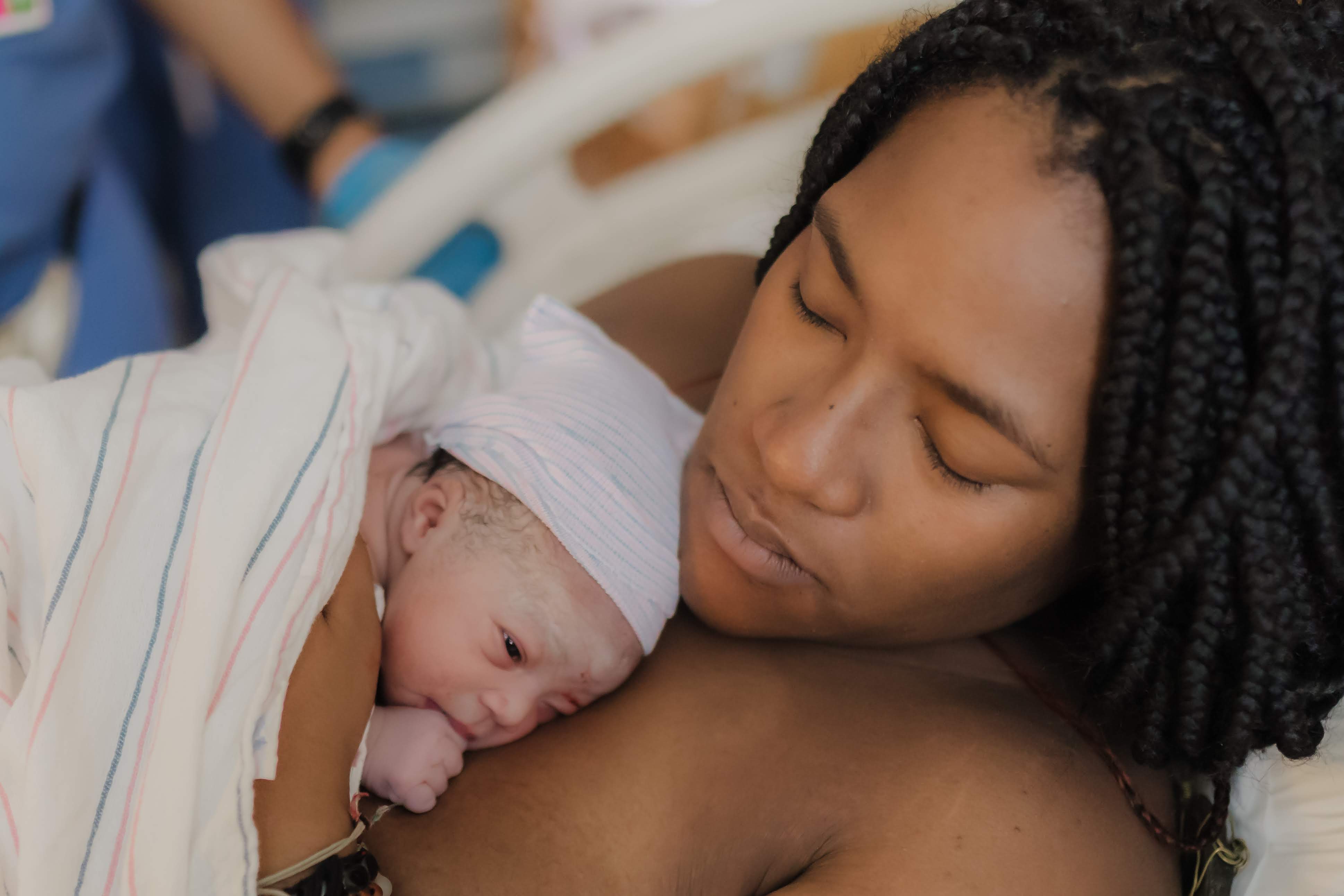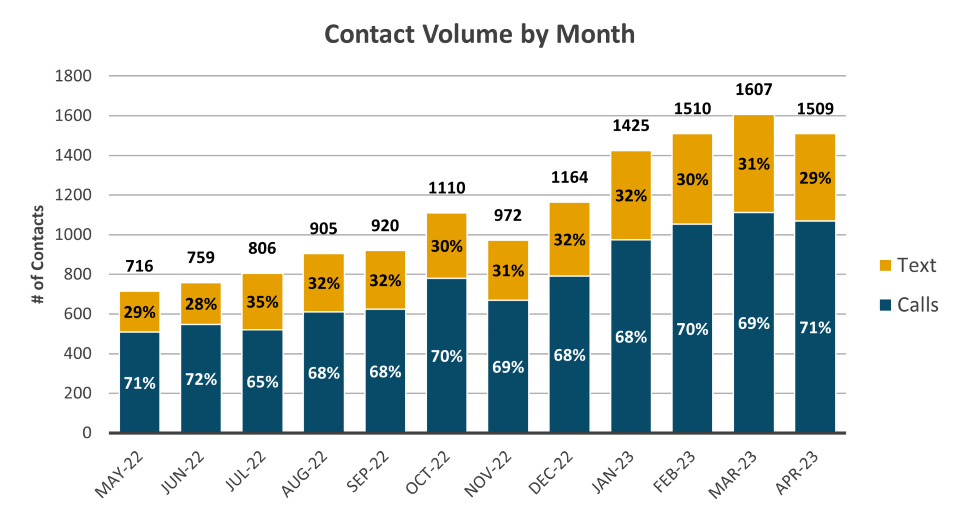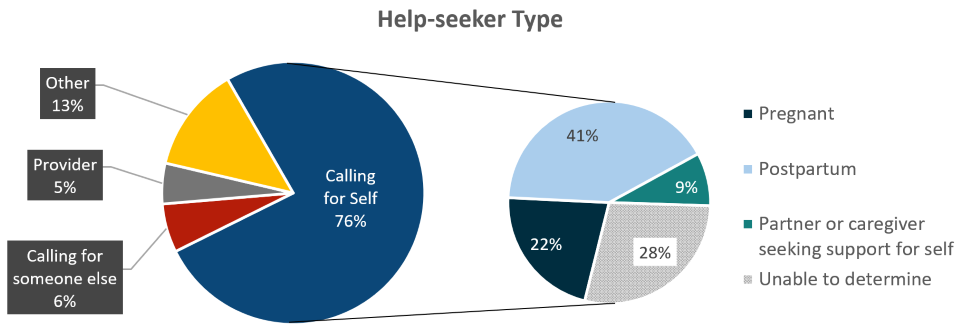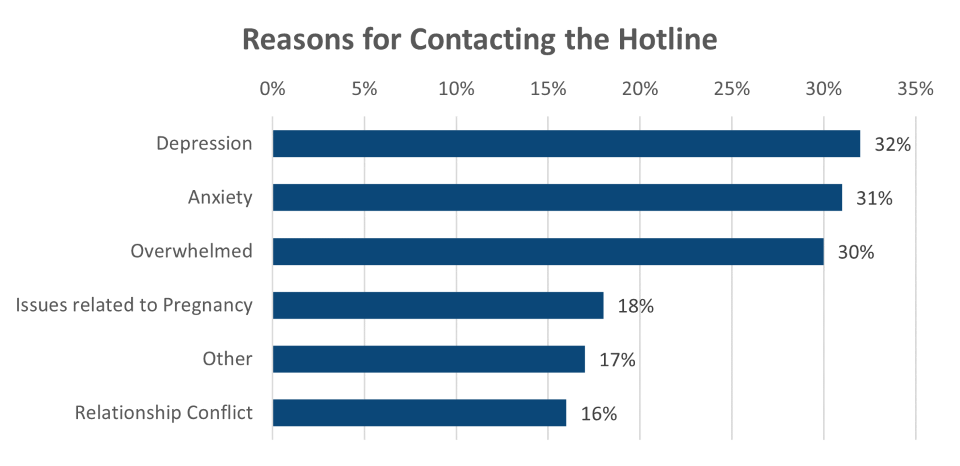Mother's Day marks the first anniversary!
Here’s what people are saying:
“The hotline helped calm the storm before it turned into a hurricane.”
“I suddenly don’t feel like I’m drowning. I’m going to be okay. I hope people understand that it does help.”
“You've made me feel heard and that there's hope for me."
In its first year, the Hotline’s professional counselors have had about 13,400 conversations, serving pregnant and postpartum people (people who recently gave birth) and their loved ones.
The following data show the reach and quality of Hotline services. All data are from May 8, 2022, through April 30, 2023.1
How many people contacted the Hotline in its first year?
Counselors provided emotional support, resources, and referrals through nearly 13,400 contacts. About 70% of contacts were by phone and 30% were by text.
Detailed description of Contact Volume by Month
How quickly did counselors answer calls?
The average speed to answer for telephone calls was 25 seconds, and 17 seconds for texts.
Did people contact the Hotline for themselves or someone else?
Most people are calling for themselves:
- 76% are calling for themselves
- 6% are calling on behalf of someone else (e.g., for a family member or friend)
- 5% said they were providers (contacting on behalf of a client or requesting information about the hotline)
- 13% were categorized as other/unable to be determined 2
Were the people who contacted the Hotline pregnant or in the postpartum period?
Among the people who said they were calling for themselves, more reported reaching out in the postpartum period, vs. those who are pregnant (41% vs. 22%). Among those who were calling for themselves—but were not pregnant or postpartum—9% reported being a partner or caregiver seeking support.3
Detailed description for Caller Type
Why did people contact the Hotline?
People may call the hotline for more than one reason. The top reasons people contact the hotline are depression, anxiety, feeling overwhelmed, issues related to pregnancy, and relationship conflict. Because some people called for more than one reason, these percentages add up to more than 100.
Detailed description of the Reasons for Calling the Hotline
Definitions:
- Depression: A caller directly mentions feelings of depression, or the counselor recognizes signs/symptoms of depression.
- Anxiety: A caller directly mentions feelings of anxiety, or the counselor recognizes signs/symptoms of anxiety.
- Overwhelmed: A caller states they are overwhelmed. This most commonly means they are overcome with emotion/response/stimuli as a result of an amount of something (relationship, life, work, stress, childcare, parental demands, etc.) that is just too much to handle.
- Issues related to Pregnancy: A caller contacts the hotline regarding issues faced and/or experienced in the state of pregnancy or related to pregnancy.
- Other: A caller contacts the hotline regarding an issue that is unique and outside of the commonly reported reasons.
- Relationship conflict: A caller is experiencing relationship conflict that directly impacts their coping, ability to perform activities of daily living, parenting functions, and can include safety concerns, as well as intimate partner violence. Note, warm-line transfers may be made, as appropriate, to the National Domestic Violence Hotline.
Return to the National Maternal Mental Health Hotline page.
1 As of July 28, 2023, HRSA updated this webpage with a full year of data, for the period of May 8, 2022, to April 30, 2023.
2 Caller type is determined by the counselor based on the interaction.
3 Pregnant and Postpartum status is a subcategory of Calling for Self. Pregnant and Postpartum status is reported when a person says in a conversation that they are pregnant or postpartum. 28% of callers declined to answer or were unable to be determined.



